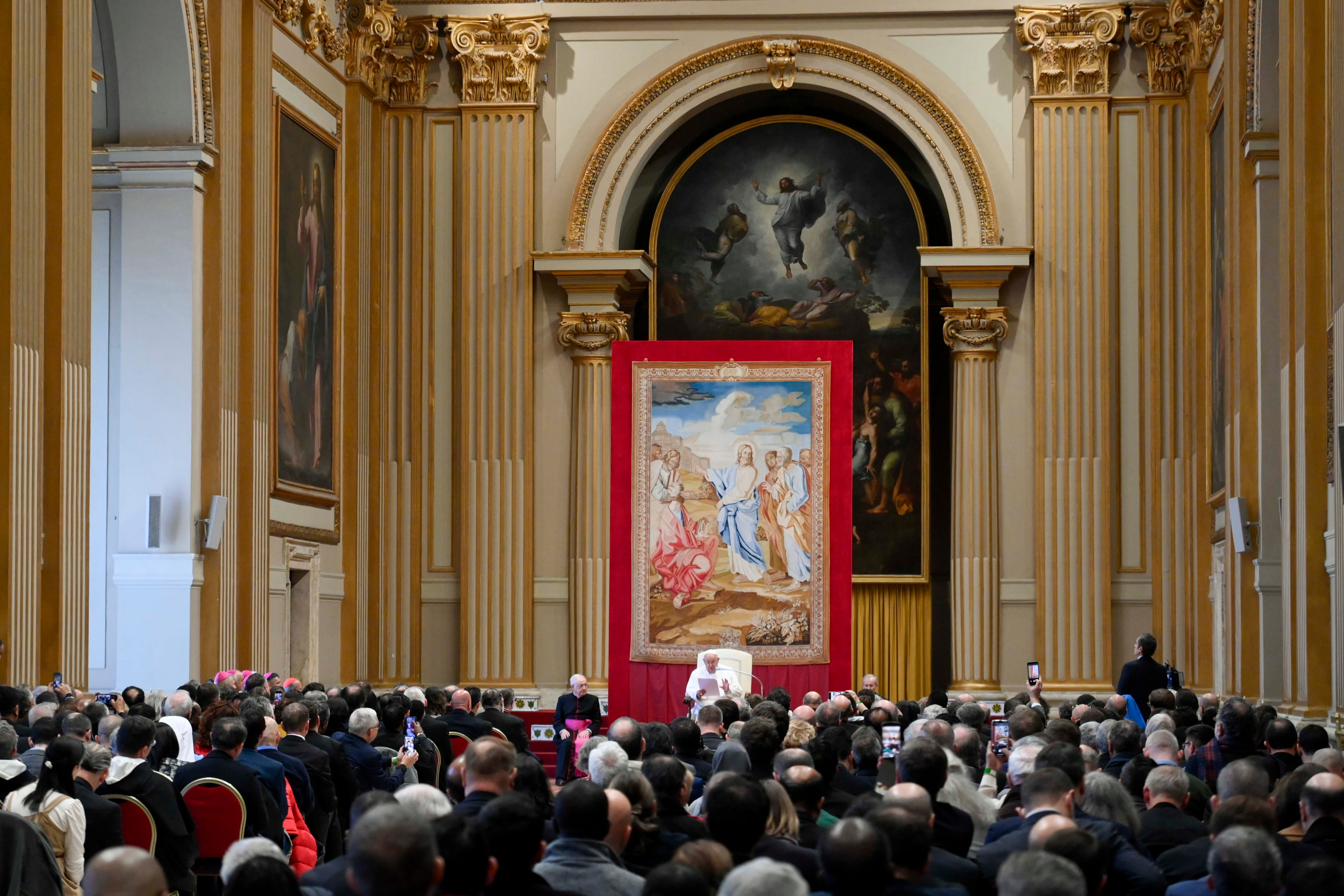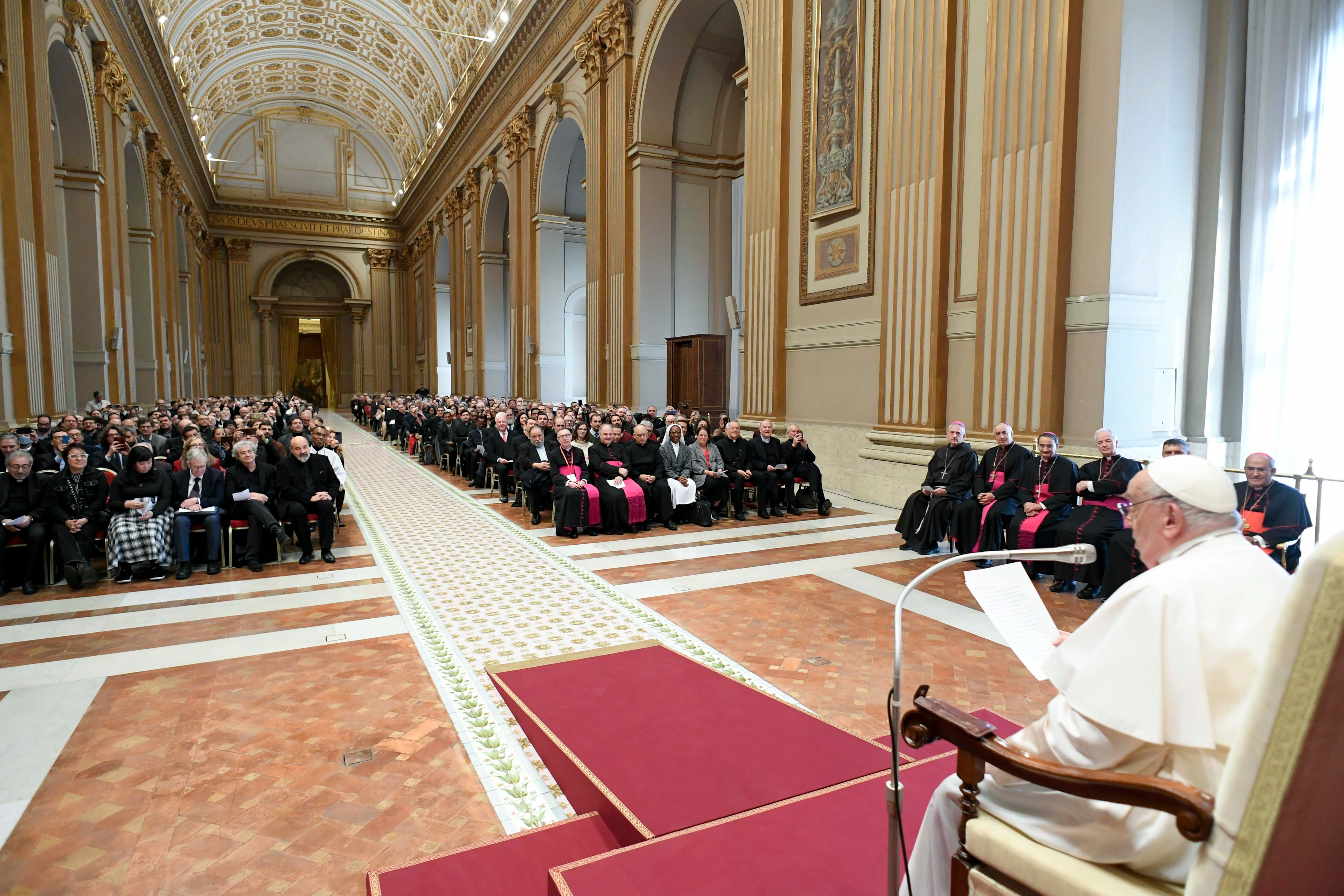VATICAN CITY (CNS) — Theology should serve as a guiding companion for those seeking meaning and truth, particularly during life’s pivotal moments, Pope Francis said, calling on theologians and theology faculties to expand their outreach.
Speaking to participants in a conference on the future of theology organized by the Dicastery for Culture and Education, the pope asked that the discipline be made “accessible to all,” particularly those engaging with theological questions during middle age.
“Middle age is a special time in life,” when, upon achieving greater stability in one’s work and personal life, “failures are painfully felt and new questions arise as youthful dreams fade,” he said Dec. 9.
In response to such situations people “can feel abandoned or even at an impasse — a mid-life crisis — and sense a need to renew their quest, however tentatively, perhaps even with a helping hand,” he said. “Theology can be that guide on the journey.”
Pope Francis asked that theology programs make adjustments to accommodate people interested in advancing their studies in middle age.
“Please, if any of these people knock at the door of theology, of the schools of theology, may they find it open,” he asked the scholars. “Make sure that these women and men find in theology an open house, a place where they can resume their journey, a place where they can seek, find and seek again.”
The international congress, titled “The Future of Theology: Legacy and Envisioning,” was taking place at the Pontifical Lateran University in Rome Dec. 9-10. The program included sessions addressing themes such as the geographical and cultural diversity of theology; the integration of non-theological perspectives such as music, literature and science; and theology’s role within society, the church and the world.
Participants included theologians, academics and artists from various global contexts, with contributions highlighting interdisciplinary approaches and local theological traditions.
Reflecting on the current state of theology, the pope stressed the need to expand the role of women in academic theology: “There are things that only women understand, and theology needs their contribution.”
“An all-male theology is an incomplete theology,” he said. “We still have a long way to go in this direction.”
Pope Francis also expressed his desire that theology “help to rethink how to think” and to help society “move beyond simplification.”
“Reality is complex; challenges are varied; history is full of beauty and at the same time marred by evil,” he said, explaining that a failure to engage with such complexity often results in a tendency to simplify ideas.
“Simplification, however, mutilates reality,” he said. “It gives rise to empty and unilateral thinking, and it generates polarization and fragmentation.”
The pope said one “antidote” to simplification could be found in developing cross-disciplinary approaches to theological reflection, such as studying theology in conjunction with philosophy, literature, the arts, mathematics, physics, history, law, politics and economics.
“By helping to rethink how to think, theology will once again shine forth as it deserves, in the church and in the various cultures, helping each and all in the pursuit of truth,” he said.
Pope Francis said that the purpose of theology is not to draw attention to itself or its practitioners, rather “it works quietly and humbly so that the light of Christ and his Gospel can emerge.”
“All theology is born of friendship with Christ and love for his brothers, his sisters and his world,” he said, “this world, at once magnificent and tragic, filled with overwhelming beauty but also great suffering.”


